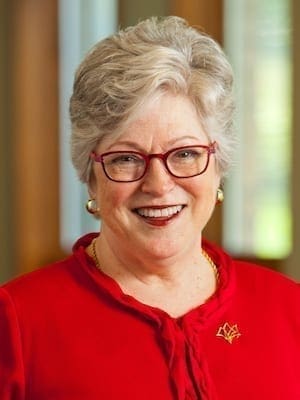Nothing widens an American’s self-understanding like learning how our nation is seen by other parts of the world.
I remember several trips to Myanmar (formerly Burma) prior to the 2016 election and the acute interest in its outcome.
Both Secretary Clinton and President Obama had made overtures to the nation that seemed promising, and the citizens wondered what might lie ahead with a new regime. I even encountered “O’Burma” T-shirts in the street markets.
Ethnic minorities, who are primarily Christian, were especially interested in whether religious liberty would be enhanced.
In recent years, The Preservation of Race and Religion Law has blatantly given privilege to Buddhists as the “favored religion.” Muslims, Christians and Hindus have felt the contraction of their freedom.
While we may want to continue with our benevolent view of the sweeping influence of the U.S. around the world, the nationalistic pursuits of other countries offer a counter-narrative to our exceptionalist rhetoric.
They know that the U.S. myths of “noblesse oblige” and the “city on the hill” serve political more than humanitarian purposes.
Folks at home mired in poverty see through the claims that our nation provides aid to struggling countries out of altruistic motives and interrogate the social contract that has failed them.
It is very helpful for a theological school to have students from around the world. It kindles a new way of seeing for students from Korea, Africa, Myanmar, India, Thailand and the U.S. to gather in one classroom.
Perceptions about Christian identity that arise from these discrete contexts shape how they read texts, think about church and prepare for public witness in hard places.
Sharpening the understanding of social location adds significant insight in theological construction.
I remember a conversation I had with a doctor of ministry student, Za Khar, from Chin State in Myanmar.
We were driving through a section of Kansas City when he suddenly remarked, “People here don’t have to think about heaven, do they?”
It was an indirect commentary on the affluence he was observing, a stark contrast to village life in parts of his homeland.
It also suggested that U.S. culture was pretty “this-worldly.” In other words, get all you can and secure your financial future above all else.
The current “Make America Great Again” slogan would have more credibility if it did not mean cavalier disregard for vulnerable persons seeking asylum and protection for those with the greatest wealth.
Great in compassion, great in generosity, great in opportunity – these overtures would kindle a more humble nationalism.
Greatness is not achieved at the expense of others, as if a zero-sum game is the only possible method of attending to national interests.
Ultimately, our current approach is an individualistic rather than communal approach to self-preservation. Of this gambit, Jesus warned, “the ones who seek to save their lives will lose them” (Luke 17:33).
It is the role of theological education to form a moral imagination that lives out the message of the prophetic tradition of the Bible, culminating with Jesus.
The current politics of exclusion, to which white evangelicals remain wedded, arises from a fear of a morally and ethnically changing country.
Both give opportunity, in my view, to understand better the expansive vision of God.
Theological education at its best offers a nuanced view of humanity, created after God’s own likeness, yet stained by its fall to violence. It warns against trampling the poor, the vulnerable and the new neighbor.
The ethnic nationalism being bred by the current presidential regime cannot go unchallenged, and seminaries and schools of theology can offer the prophetic word through a new generation of ministers.
Calling out the rampant white nationalism is an essential part of our curriculum in these times.
Editor’s note: This article is part of a series focused on Christians opposing Christian nationalism. It is published in conjunction with the launch of a BJC-led initiative ChristiansAgainstChristianNationalism.org. The previous articles in the series are:
U.S. Christians Speak Out Against Christian Nationalism | EthicsDaily.com staff
Threat of Christian Nationalism Has Reached High Tide | Amanda Tyler
Freedom Fighters: Baptist Defenders of Religious Liberty | Pam Durso
Your Fight Song Against Christian Nationalism: I Won’t Back Down | Brian Kaylor
Why Christian Nationalism Cannot Tolerate Crucified King | Jakob Topper
Many Christians Don’t Acknowledge Their Christian Privilege | Michael Cheuk


